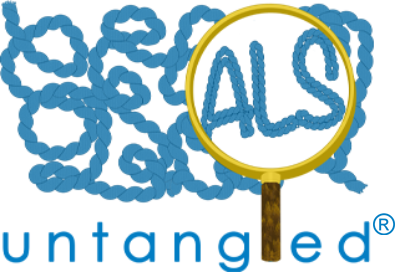Basis
Basis has mechanisms of action that could theoretically be useful in treating ALS. It appeared reasonably safe in a small, short duration study of healthy volunteers and it is fairly inexpensive. However, we found no data in preclinical ALS models, no case reports, and no trials in PALS. Based on this lack of data, ALSUntangled […]
Ayahuasca
Ayahuasca has interesting mechanisms that could potentially be useful in treating human ALS. We found one person who appears to have experienced an ALS reversal following exposure to a single dose of ayahuasca and several other AOTs. We do not believe that a single dose of ayahuasca could trigger a mechanism that would reverse ALS. […]
Gluten-Free Diet
Theoretically, gluten-induced autoimmunity could trigger ALS. However, the data supporting this link are weak, consisting of two association studies and a single case-report. Further studies are needed to confirm the relationship between GRDs and ALS, and the utility of the GFD in patients with both conditions. In spite of the fact that GFD is reasonably […]
Lunasin
Lunasin has interesting mechanisms of action that might be useful in treating ALS, and it appears reasonably safe although some forms of it are expensive. While some PALS have reported improvements on lunasin, we have thus far found only one in which we were able to independently validate these improvements. This patient had atypical features […]
TUDCA
Ursodiol has interesting mechanisms of action, appears reasonably safe and well-tolerated, has anecdotal reports of benefit in 6/21 of patients who report taking it, and a form of it (Yoo’s solution) was associated with slightly slower ALS progression in one out of three outcome measures within a poorly designed study that did not account for […]
Vitamin D
At this time, there is evidence that PALS, like those with other chronic illnesses, are at increased risk for vitamin D deficiency. It is, therefore, reasonable to screen PALS for this. If vitamin D deficiency is found, it seems reasonable to supplement vitamin D according to established guidelines (31) in order to avoid medical complications […]
Propofol
Propofol has mechanisms of action that may be relevant in treating ALS, although the short action of the drug makes it unlikely that a single infusion could influence ALS pathophysiology in a meaningful way. On ALS.net, six patients with ALS reported wide-ranging subjective benefits coincident with propofol use. Unfortunately, none of these benefits has been […]
Apoaequorin (Prevagen)
There is a rationale by which the calcium binding protein apoaequorin could work to slow ALS progression. Unfortunately, at this time there is insufficient information available to determine whether it does. The one small case series referred to above utilized a cocktail of therapies and is further weakened by the loss of its standardized outcome […]
